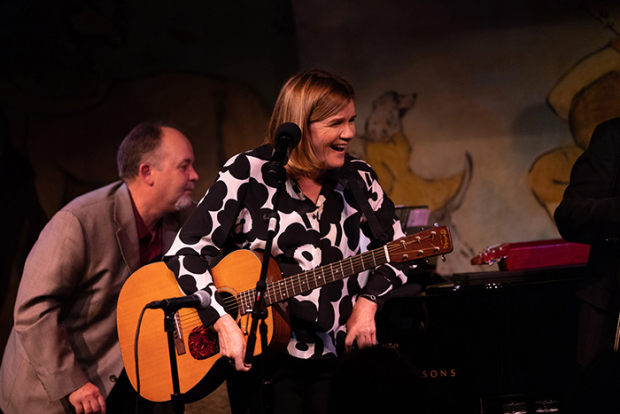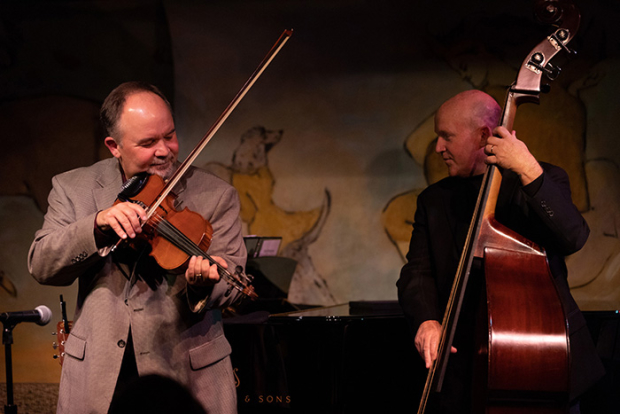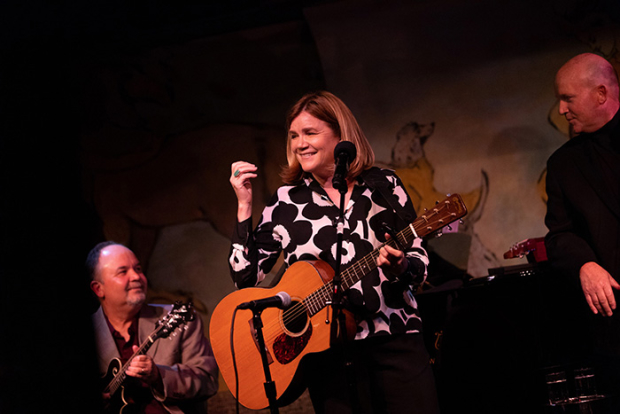Mare Winningham Brings Jewgrass and Soulful Folk to Her Café Carlyle Debut
Winningham will be returning to Broadway this season in the Bob Dylan musical ”Girl From the North Country”.

(© David Andrako)
There's a kindness that pours out of Mare Winningham in every one of her performances — whether she's playing the disillusioned matron of a 1960s Catskills haven for cross-dressers in Casa Valentina, channeling the regressive behaviors of a mentally deteriorating woman in the Bob Dylan-scored Girl From the North Country, or just playing some folk tunes on her guitar for a room full of friends.
Winningham's rendition of Dylan's "Forever Young" in the Broadway-bound musical (opening this March at the Belasco following a 2018 off-Broadway run at the Public Theater) was my primer on her musical aesthetic — a soothing folk blend of Joan Baez and Dar Williams that makes you wish she were singing to you by a campfire instead of in a big proscenium theater.
That wish is nearly granted in her show at the Café Carlyle, where she'll be performing through November 2. She warms up the elegant Upper East Side setting with her set list of originals and covers (including an encore of "Forever Young," so clap loudly if you want that one), accompanied by brilliant bluegrass musicians Tim Crouch on fiddle and Dennis Crouch on bass.

(© David Andrako)
She occasionally puts her song choices in the context of her career (her original song "If I Wanted," which she sang in the film Georgia, and Patty Griffin's "Makin' Pies", which she performed in the off-Broadway musical 10 Million Miles, both make it on the bill).
But a memoir-filled vanity project this certainly is not. The only bragging she does over the course of her set list is on behalf of her children, who she regretfully admits did not indulge her family band dreams, but did tangentially contribute to her show (her daughter Calla Mapel wrote the lovely song "Vampire," and we're told the science-themed "Einstein" was Winningham's stab at a bedtime lullaby).
She has no interest in patting herself on the back for her accolades (of which she has many) or poring over the details of her personal or artistic life through self-indulgent melody (even though I'm sure her corpus of "Jewgrass" music comes with a fascinating story about her conversion to Judaism). She's here to sing you soulful songs, many of which, she humbly explains, "are sad, but make you feel better."
And they do. A night being sung to by Mare Winningham is a salve for the soul — not to mention a once-in-a-lifetime opportunity to hear Nirvana's "All Apologies" arranged for dulcimer. And they say you can't make folk cool.

(© David Andrako)








